As Vladimir Putin enters his twilight, what comes next could be worse
Vladimir Putin has created a monstrous strategic, political and social mess. It’s a terrible price the world is paying for the dictator’s end times. How will the Ukraine war go from here?
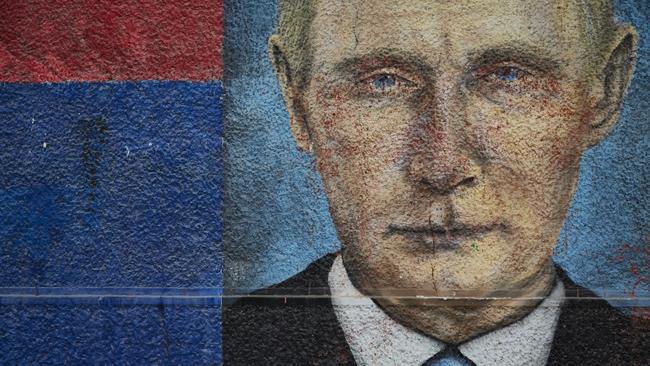
– Gabriel Garcia Marquez, The Autumn of the Patriarch
Russia’s dictator for nearly a quarter of a century, Vladimir Putin, has entered the end times of his rule. Challenged by Wagner mercenary leader Yevgeny Prigozhin, Putin is now wounded and weakened. The psychic and emotional toll on Putin, about whose health rumours continue to swirl, must be enormous.
The future for Putin, and for Russia, and indeed because of Russia’s nuclear weapons for the world, is intensely dangerous.
Prigozhin’s brazen challenge to Putin’s authority was unprecedented. Prigozhin marched thousands of his fighters out of Ukraine and to within 200km of Moscow, encountering little resistance. His initial objective, according to speculation arising from US intelligence, was to capture his enemies, Defence Minister Sergei Shoigu and Chief of the General Staff Valery Gerasimov.
When that became impossible he apparently decided to march on Moscow. He strolled into Rostov-on-Don and occupied its military headquarters. It’s the site of the command of Russia’s war in Ukraine and near a Russian nuclear weapons facility.
This is surely the plot of a semi-satirical Arnold Schwarzenegger spy fantasy, not the reality of modern Russia, a permanent member of the UN Security Council, a nation with nearly 5000 nuclear warheads.
At the last minute, Belarusian dictator Alexander Lukashenko negotiated a compromise. Prigozhin went to Minsk. His fighters were welcome to join him there, go back to Ukraine and join the Russian Army, go back to their homes or, presumably, join Wagner operations in Africa.
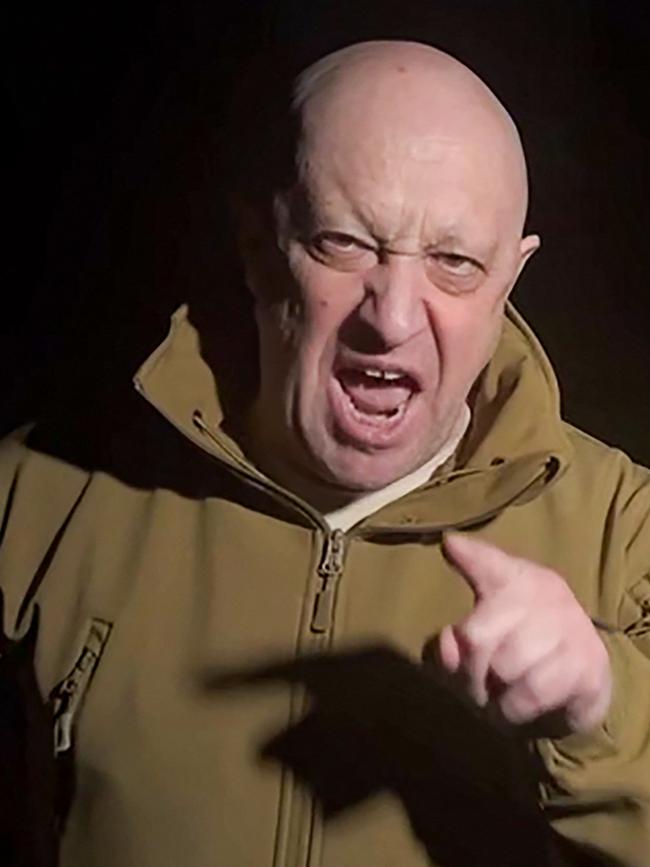
Everything is shrouded in mystery. Prigozhin is believed to be in Belarus but his jet is also reported to have flown back to Russia. Putin one day accused the Wagner group of treason, then next day promised all criminal charges against them would be withdrawn. After contradictory signals, Putin said he’d honour his promises to Wagner.
Former British foreign secretary William Hague declared brutally: “After the events of the week, either Putin or Prigozhin must die.”
Prigrozhin manifestly isn’t dead, or under any obvious restrictions. The Wagner Group is intact. Russian Foreign Minister Sergei Lavrov, the most stable element of Putin’s government, went on TV to assure African governments the Wagner Group’s international operations would continue.
Some Russian generals knew about Prigrozhin’s planned insurrection in advance. General Sergei Surovikin, the deputy head of the Russian operation in Ukraine, and also head of the Russian air force, reportedly was arrested in Moscow after the stalled rebellion.
Yet the only Russian military forces that attacked Wagner troops on their march towards Moscow were air force planes and helicopters under Surovikin’s command.
The whole of Russia is bathed in paranoia. All the intelligence agencies want to show Putin, or whoever might be in charge next week, they are identifying the conspirators within. In truth, Putin has entered the twilight of the dictator.
Geremie Barme, Australia’s most brilliant analyst of Chinese political culture, reflected on the circumstances facing all absolute dictators, like Putin and China’s Xi Jinping. Barme tells Inquirer: “The minute they establish their absolute power they are in decline, their sense of paranoia grows over time, they often lapse into almost spiritual interpretations of empire or restoring national greatness. They all share a similar narrative arc, and it never ends well.”
The granular detail of Moscow’s byzantine power struggles is compelling, even though motivations are shrouded in mystery. Yet the stakes for the whole world are such that Western governments and analysts must attempt broad interpretation.
Malcolm Davis of the Australian Strategic Policy Institute, whose analysis has gained international attention, tells Inquirer: “Last weekend’s events were the end of the beginning. Now we’re at the beginning of the end.”
Davis thinks Putin so weakened that his days are numbered.
He believes it’s impossible Putin could name a successor and leave office peacefully: “Putin knows that as soon as he steps away from the presidential post, he’s toast. He’ll hang on till the bitter end. What worries me is what he does at the bitter end.”
Putin’s increased visibility in the past few days is an effort to regain authority. He’s likely to engage in a series of purges. This would be consistent with Russian history and with communist culture. Though not now notionally communist, Putin was a colonel in the KGB and formed in the old Soviet Union. In comparing Prigozhin’s rebellion to 1917, Putin seemed to cast himself in the role of the last tsar.
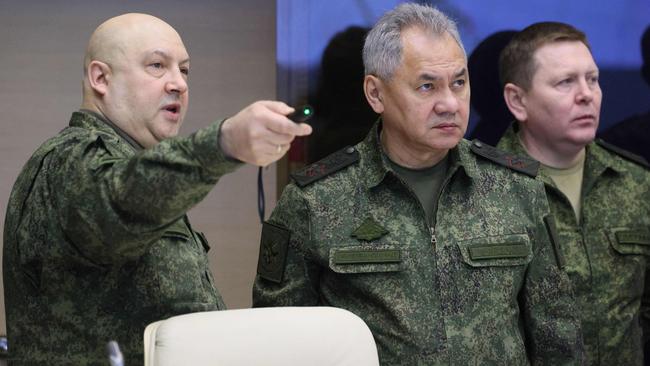
Putin will want to show he can still punish enemies. A missile strike on innocent civilians in Kramatorsk in Ukraine, which killed at least a dozen non-combatants, was part of that.
The failure of Putin’s war, the hit to Russia’s economy, the dissatisfaction among Russian elites, the warring factionalism among senior figures military and security figures, the flight of tens, perhaps hundreds, of thousands of young Russians overseas – all this means Putin’s leadership no longer delivers a single positive result.
Prigozhin’s most explosive statement was his declaration that the whole operation in Ukraine was based on lies. There are no Nazis in the Ukrainian government. Neither Ukraine nor NATO posed any threat to Russia. There was no defensive justification for invading Ukraine.
Now, some of the warring parties at the top of Russian life are recalibrating their backing of Putin. The system Putin created lends itself to this. The Russian military has been hollowed out by corruption. It can be brutal but has little fighting spirit.
Putin dealt with this by enabling the establishment of private military companies such as Wagner. These companies had many uses. They could do internationally illegal work while providing a veneer of deniability to Moscow. This was first evident in Russia’s invasion of Ukraine in 2014, which was carried out by Wagner mercenaries who didn’t wear Russian uniforms. The West’s reaction was weak and this gossamer-thin veil of deniability was enough to reinforce Western weakness.
Putin intentionally kept many factions and leaders in play, encouraging them to compete with each other. It’s a scenario perhaps best portrayed in Game of Thrones. Astonishingly, there are 37 private military companies in Russia, many associated with different oligarchs. Russia is also divided regionally.
Davis sees three potential horror scenarios.
The first is that Putin escalates by using tactical nuclear weapons in Ukraine. Putin could polarise Russian and international politics around himself through such moves. It would be extraordinarily dangerous. Putin has frequently made veiled nuclear threats. In 2014 he changed Russia’s nuclear doctrine to allow first use of nuclear weapons to respond to conventional attack. Ukrainian military success could trigger such a panicky response. Senior Russian strategists have been openly talking up a nuclear option. Sergei Karaganov, the head of Moscow’s Council for Foreign and Defence Policy, recently said that by using nuclear weapons, Moscow could “break the West’s will”. Other senior Russians say similar things. This is deliberate messaging for the West.
A variation would be for Russia to blow up Ukraine’s Zaporizhzhia nuclear power plant. This would be an act of savage international vandalism that the Russian state might try to disguise as some kind of rogue Ukrainian operation. It could devastate Ukraine’s ability to produce food and contribute to a food crisis in the Third World, which the West would have to cope with one way or another. This would be an extraordinary gamble by Putin, who might calculate the West would pressure Ukraine into some kind of peace deal allowing Putin to finish the fighting and claim he’d restored a slab of territory for Russia.
Disastrous scenario No.2 is the break-up of Russia into civil war or dominance by regional governors and war lords. Not only would this devastate Russian society and economy, it would create a crisis around who had positive control of Russia’s nuclear weapons.
So far, the military units controlling Russia’s nukes have been professional and reliable. In a civil war, or something approaching it, this would surely break down.
Horror scenario No.3 is that Putin is indeed removed, but replaced by someone even worse, even more nationalist and with a harder line military approach, someone indeed like Prigozhin.
There are less dire possibilities. Putin may hang on to power, weakened but still in office. He could be replaced by a military figure who, while hardline and nationalist, is nonetheless more conservative in behaviour, less risk-taking, someone who wants stability and reconsolidation.
There’s no prospect of a liberal democrat such as the imprisoned Alexei Navalny taking power. Such policy inclinations may be the majority sentiment of Russian people, though we cannot know, but they have no representation in the power elites that will make the decisions.
Apart from anything else, Russia is now completely dependent on China, and Beijing would never allow a liberal government, keen to re-engage the West and implement free elections, civil rights and a free media, a la Boris Yeltsin more than 30 years ago, to emerge in Moscow. Beijing will be looking aghast at the Russian mess. Xi describes Putin as his “best friend”. They’ve had dozens of meetings and declared their two countries share “a friendship without limits”.
The connections between Chinse and Russian communism, and between the contemporary outlooks of Xi and Putin, are much more intimate than most Western commentators realise. The Chinese system is more sophisticated than Russia’s, its state capacity greater, it doesn’t have private military companies like Wagner and it’s not involved in a debilitating land war on its border.
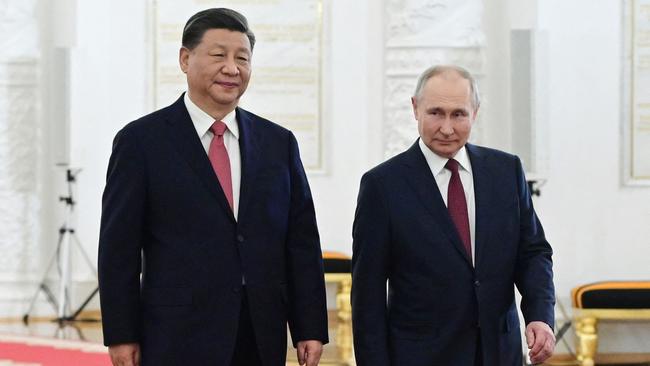
But the last time Xi visited Putin in the Kremlin, the Chinese leader declared: “The world is experiencing changes unseen in a hundred years, let’s advance them together.”
For those fluent in the dialect of communist ideology this is a clear reference to the Bolshevik Revolution of 1917 that brought the communists to power in Moscow. The Chinese Communist Party has always held that this revolution also brought communism to China. The CCP was founded a few years later, in part with Russian money.
Barme points out that the two communist parties, and the two national governments, had intense, sometimes antagonistic, sometimes symbiotic, relationships with each other all through the 20th century.
Now Xi and Putin share much in their world view. They both feel their respective countries have been wickedly treated by the West. They both want a new world order. While 1917 was the birth of communist government, it also in many ways marked the birth of the American century, a dismal development in the view of Moscow and Beijing.
Both leaders dream of restoring their respective national empires. Barme argues that in conquering Xinjiang, part of Mongolia and Tibet, and taking full possession of Hong Kong, Beijing has already retrieved much of the Qing dynasty empire. It still wants Taiwan, of course, and possibly a good bit else. Its historical justification for its claims over the South China Sea are almost identical to the claims former Chinese president Hu Jintao suggested about historical Chinese connections with northern Australia in a strikingly strange speech during a visit more than 15 years ago.
Xi, like Putin, is 70. The call of historical destiny, against the fate of inevitable human mortality, haunts the twilight of every dictator. Chinese leaders live longer than Russian leaders, but they don’t live forever. Putin wanted to recover Ukraine and more of the old Russian empire. The Chinese will surely take from Putin’s travails that they must not have a protracted conflict over Taiwan.
How will the Ukraine war go from here?
Since Putin failed to conquer Ukraine quickly, he seems to have had two thoughts.
One is to make Ukraine a smoking ruin so his enemies in the West cannot point to it as a democratic and material success. The other is the hope that he could outlast the West, that eventually the West would lose interest in Ukraine, stop sending it weapons and money. Certainly the pile of old junk Canberra donated last week to Ukraine, with its absurd valuation of $110m, might encourage Putin in that thought.
It’s extraordinarily difficult for Ukraine to make huge gains in its counter-offensive. The fighting resembles World War I’s trench warfare. Without air dominance, it’s difficult for offensive forces to overcome entrenched defensive positions.
It’s understandable that Volodymyr Zelensky and other Ukrainian leaders reject ceding any territory to Moscow. But eventually the war must end. As others have suggested, a ceasefire in place, which becomes a permanent armistice, as happened at the end of the Korean War, might be a model. For this to have any chance of working, Ukraine’s Western backers would have to give Kyiv absolute security guarantees of its new borders, probably involving NATO membership. Otherwise the Russians can take a breather and resume fighting in a few years.
The Ukrainians need to be smart about their timing. The South Vietnamese had a pretty good military defence against the North Vietnamese but Washington got tired of supporting them and negotiated with Hanoi without any input from Saigon. This devastated South Vietnamese morale.
Similarly, Joe Biden’s administration negotiated its exit from Afghanistan with the Taliban, without America’s Afghan allies even being in the room.
The Ukrainians are strong now. But they want to avoid that fate. The whole world wants to avoid catastrophe emerging out of Russian chaos. Putin has created, wholly needlessly, a monstrous strategic, political and social mess, grotesque suffering and tragic losses for humanity in Ukraine and Russia.
It’s a terrible price the world is paying for the dictator’s twilight. Yet it’s by no means certain that what comes next won’t be even worse.


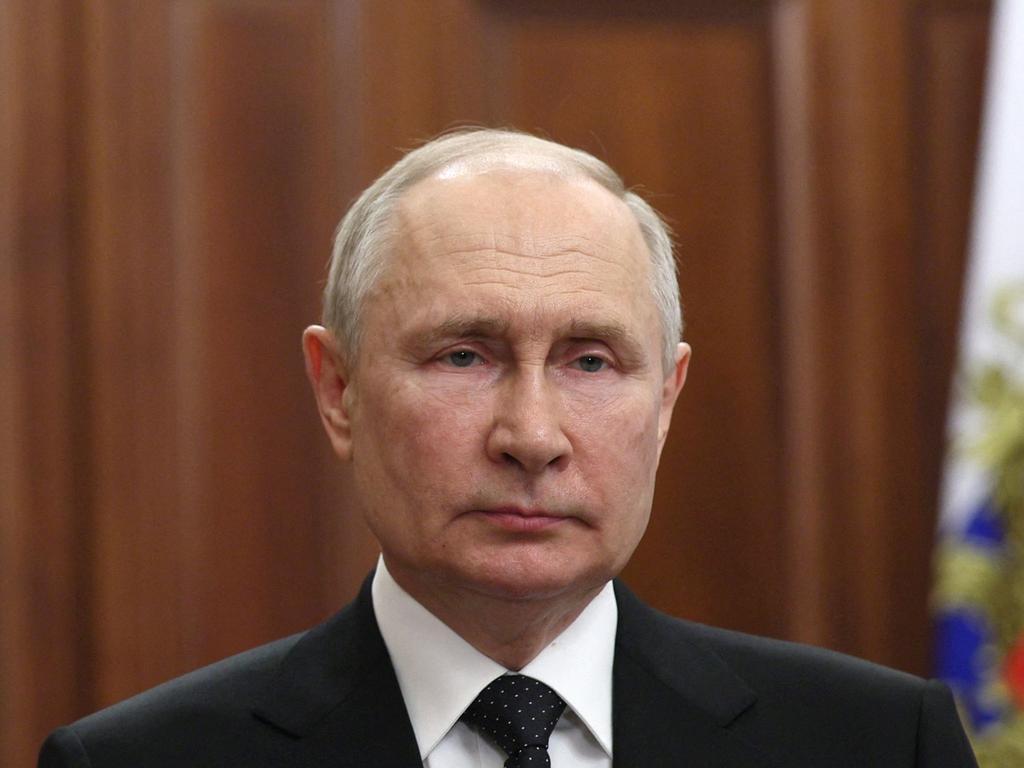


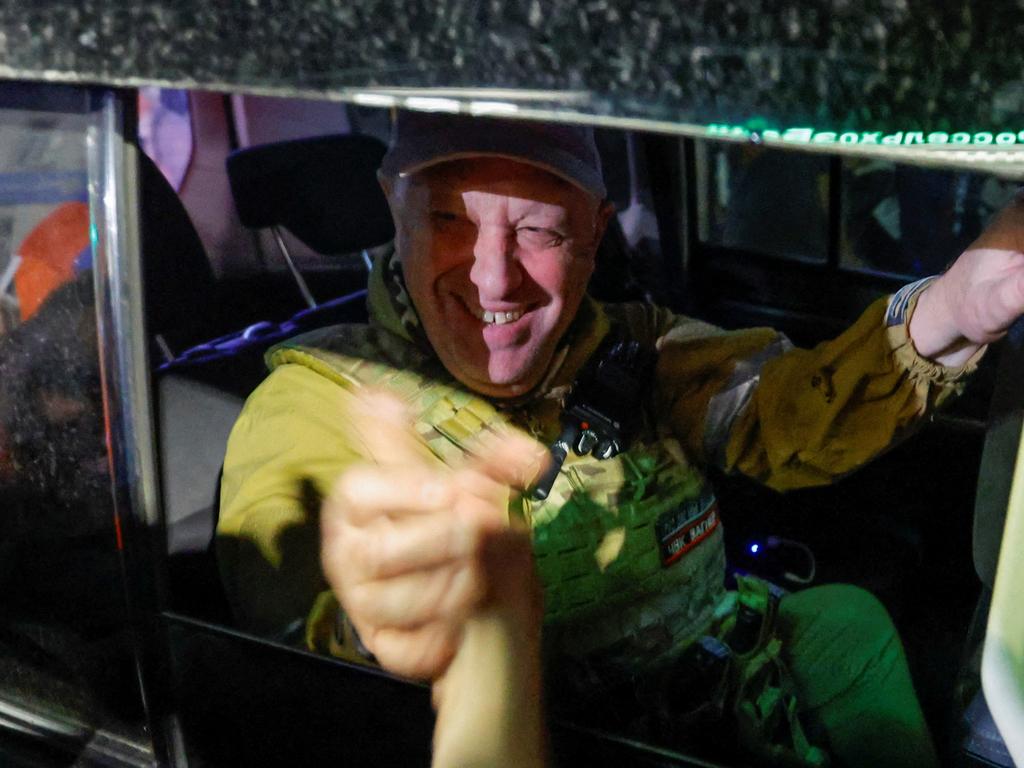
He discovered in the course of his uncountable years that a lie is more comfortable than doubt, more useful than love, more lasting than truth.